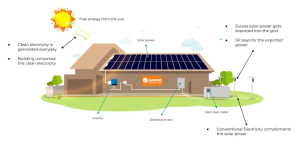Nuclear power has long been touted as a clean and safe alternative to fossil fuels, offering the promise of abundant energy with minimal greenhouse gas emissions. However, a closer examination reveals that nuclear power is not as clean or safe as many people believe. The industry harbors significant environmental and safety concerns that cannot be ignored.
Radioactive Waste
One of the most significant issues with nuclear power is the management of radioactive waste. Nuclear reactors produce spent fuel rods and other radioactive byproducts that remain hazardous for thousands of years. Finding a suitable method of disposal has proven to be a daunting challenge. Current storage solutions involve storing waste in containment structures, such as dry casks or spent fuel pools, which are not infallible and can potentially leak over time, posing a significant environmental risk.
Accidents and Catastrophes
The 1986 Chernobyl disaster and the 2011 Fukushima Daiichi meltdown are haunting reminders of the catastrophic potential of nuclear accidents. These events serve as stark reminders of the grave consequences of a nuclear meltdown. The long-term environmental damage caused by these disasters is a testament to the hazards associated with nuclear power, and the potential for such events to occur should not be underestimated.
High Initial and Ongoing Costs
Contrary to the perception of nuclear power being a cost-effective solution, the construction of nuclear power plants requires massive upfront investment. Delays and cost overruns are common, making nuclear energy financially risky. Additionally, the decommissioning process of nuclear plants is complex, time-consuming, and expensive. The shutdown of reactors and the safe dismantling of facilities can take decades and require significant financial resources.
Nuclear Weaponization and Global Security
The spread of nuclear technology for energy production also raises concerns about nuclear proliferation. The dual-use nature of nuclear facilities means that the same technology that generates power can also be repurposed for the development of nuclear weapons. As more countries seek to develop nuclear energy programs, the risk of weaponization increases, potentially destabilizing global security.
Environmental Impact of Mining and Fuel Production
While nuclear power plants themselves do not emit greenhouse gases during operation, the process of mining and processing uranium for fuel has significant environmental impacts. Uranium mining can lead to habitat destruction, water pollution, and disruption of local ecosystems. Moreover, the energy-intensive processes involved in uranium enrichment and fuel fabrication contribute to carbon emissions.
Limited Fuel Supply
The primary fuel for nuclear reactors, uranium, is a finite resource. As demand for nuclear power increases, the global supply of high-quality uranium ore may become depleted, leading to potential supply chain issues and increased competition for remaining resources. This raises concerns about the long-term sustainability of nuclear power as a reliable energy source.
it is important to recognize that the industry is not without its drawbacks. The management of radioactive waste, the potential for catastrophic accidents, nuclear proliferation risks, high costs, environmental impacts of mining and fuel production, and the finite supply of uranium are all concerns that challenge the perception of nuclear power as a clean and safe energy solution. As we strive for a more sustainable future.




